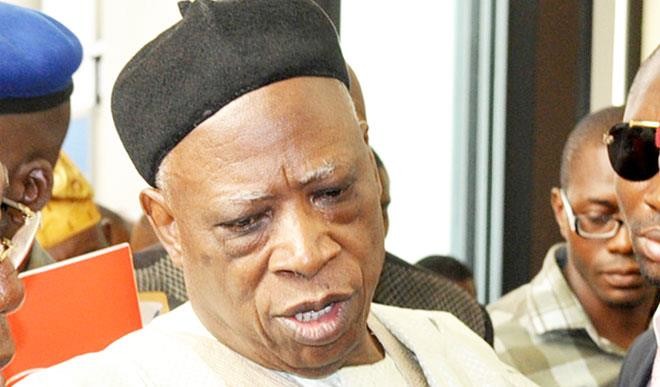Agriculture: Link between tiers of government is weak – Adamu
Senator Abdullahi Adamu chairs the Senate Committee on Agriculture at the National Assembly. The former, who was the governor of Nasarawa State (1999-2007) recently celebrated his 70th Birthday. In this interview with Daily Trust, he bares his mind on the nation’s agriculture. Excerpts: Given the Nigeria’s commitment to diversify into agriculture, what initiatives do you […]


Senator Abdullahi Adamu chairs the Senate Committee on Agriculture at the National Assembly. The former, who was the governor of Nasarawa State (1999-2007) recently celebrated his 70th Birthday. In this interview with Daily Trust, he bares his mind on the nation’s agriculture. Excerpts:
Given the Nigeria’s commitment to diversify into agriculture, what initiatives do you recommend for the different tiers of government?
We have exclusive legislative list and concurrent legislative list and because agriculture is on the concurrent list, who is responsible for what, is not clearly defined.
The federal government has the money and expertise which state governments don’t have and it knows which line it wants to drive agriculture. The federal government also knows what road map it sets for agriculture and expects the states to key into. Now the linkages to make this happen are extremely weak and so you have policies that are not driven to the grassroots properly; the states are not keying in properly and nobody says to them you must do this.
Sometimes, to move a country forward you need to tighten the screws, you can’t avoid that. I believe that this weak link in getting the message of policy guidelines for the country on any aspect of agricultural production must be strengthened so that we can have targets.
It is one thing to have a target and it’s another to achieve the target, like which part of Nigeria is good for yam? Go there, how much land do you have? How do you get the people there to produce the quantity of yam you require? Press all the gears necessary to make that production possible to the levels that are designed in the national policy. Unless we do this, agriculture cannot get where we want it to go to and the federal government must be on the driving wheel for this to happen.
Nigeria is among the signatories of the Maputo Declaration, seeking increased budgetary allocation to the agricultural sector. Lamentably, this commitment is yet to be met. What is your reaction to this?
The policies are there but the allocations are not enough. Nigeria committed itself to providing not less than 10% of every annual budget to agriculture and that is not the case now. Our provision now is not up to 1%. The best we did was during Obasanjo or Yar’adua’s administration that we rose from about 2.7 to about 3%. But government now gives some logic as it has provided, within the budget, activities of improving infrastructure that will rub off on agricultural production. For instance if you do rural roads, it will help agriculture grow and in addition to this, value addition, rural electrification, and water supply for dry season irrigation farming.
These provisions that are made in the budget if properly followed, will rub off positively on agricultural production.
The Federal Executive Council recently approved the road map for agriculture from 2016 to 2020 called Green Alternative and your foundation has been supporting the ministry. What is your reaction on this?
I am glad that for once, the federal government has gotten practitioners in agriculture involved in developing a national policy for agriculture. I am also grateful to the Almighty that the National Agricultural Foundation of Nigeria (NAFN) was one of the non-governmental organisations’ stakeholder in this country that organised a national workshop in which small-scale, medium-scale and large scale farmers, processors, consumers, exporters, development partners and academics were all there and we rubbed mind and came up with what in our view should be road map.
The Federal Ministry of Agriculture and Rural Development took it, organised their own, the National Council on Agriculture in Kano worked on what they had and what results we had from the workshop of the National Agricultural Foundation of Nigeria, the minister and all the principal officers of the ministry were there and they participated extensively. The World Bank, Food and Agriculture Organisation of the United Nation, IFAD were also there.
The minister of Agriculture organised another stakeholders’ workshop to streamline the ideas and sharpen the edges that were identified to move us forward and came up with the road map – a policy that will go for another 10 years.
What has the National Agricultural Foundation of Nigeria (NAFN) achieved so far?
We have organised agriculture show for eight years, this is the 9th year. The show is about the exhibition of agricultural produce. Everything called agriculture – from livestock, poultry, aquaculture, cereals and tubers to legumes. Then, we also have processors, an area where we are still developing, exporters and consumers.
We also have seminars, each time we organise the show for stakeholders in the sector.
